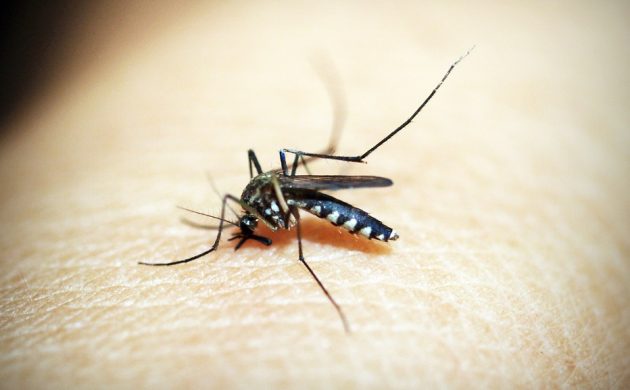Mosquitos aren’t only pesky party crashers out to ruin your backyard barbecue with their annoying buzz and sharp sting. They spread sickness and disease all over the world, and sometimes their sting can kill. One of the scariest diseases mosquitos carry is malaria, and the facts about malaria may surprise you.
According to the World Health Organization, nearly half the world’s population was at risk for malaria in 2017.
Although it mostly occurs in developing nations with climates where mosquitos thrive, it knows no borders and can strike anyone from any country at any time.
But there are other facts about malaria you should you know.
What Is Malaria?
Malaria is a disease primarily transmitted to humans through the bite of an infected mosquito.
It causes serious illness and sometimes even death. People who have malaria experience symptoms similar to a bad cold or flu. Muscular aches, fever, chills, and vomiting are common.
What causes malaria?
A parasite called Plasmodium causes malaria. After a mosquito bites someone with malaria, it becomes a host. The parasite then reproduces in the mosquito’s stomach.
In about 10 to 21 days, the parasite moves to the mosquito’s salivary glands. There, it patiently waits for the mosquito to feed on another human. When the mosquito does, the parasite travels to the person’s liver and reproduces.
Then it invades the red blood cells, conquering and destroying them while creating more parasites in the process.
That allows the parasite to continue spreading its disease. Infected humans transmit the parasite to mosquitoes, who then carry the disease from one human to another.
It’s an ugly process that verges on the facts about malaria you didn’t want to know.
Who gets malaria?
Anyone of any age can get malaria.
It mostly affects people living in sub-Saharan Africa and 86 other countries. But even if you live in a country that doesn’t have malaria, you can still get it by traveling to one that does.
Pregnant women and young children are most at risk.
The disease can pass from a pregnant woman to her baby through shared blood. And young children are susceptible because they have yet to build an immunity to the disease
And although it’s rare, people can contract malaria through blood transfusions, organ transplants, or the shared use of needles or syringes.
Can I “catch” malaria?
Malaria is not contagious. It doesn’t spread from person to person like a cold or flu.
You can’t get it from touching a door handle or by touching a malaria-infected person.
And it can’t be sexually transmitted.
How do I protect myself from getting malaria?
You can prevent Malaria by taking antimalarial drugs before traveling to areas where there is a risk of malaria transmission.
Wearing long-sleeved shirts at night and sleeping under bed nets treated with insecticide can lower your chances of getting malaria. So can using insect repellants.
20 Facts About Malaria That Will Open Your Eyes
Here are even more facts about malaria you need to know.
1. Malaria likes it warm and wet
Malaria thrives in the warm, wet, and humid temperatures found in many tropical and subtropical countries.
In these types of conditions, the mosquitos that carry malaria can survive and multiply.
2. It has visited the United States
This is one of the facts about malaria that may surprise you the most.
Malaria first came to America in 1492, hitching a ride with an infected Christopher Columbus. But the parasite couldn’t survive in the cold climate and died off.
However, it returned in 1607 when English colonists and their West African slaves settled in Jamestown, Virginia. And this time it stayed.
Native Americans got the disease, and it quickly spread throughout the nation.
It wasn’t until 1951 that the U.S. could declare itself malaria-free. That meant no new indigenous cases presented for at least three years.
But malaria still visits the U.S. Approximately 1,700 cases are reported each year. Most of these cases are immigrants and travelers returning from areas that malaria calls home.
3. Malaria gave birth to a notable organization
The Centers for Disease Control and Prevention (CDC) is in existence today because of malaria.
It began in 1946 as The Communicable Disease Center, and its primary purpose was controlling and eliminating malaria in the United States. At that time, the south still had a huge malaria problem.
The new agency replaced The Office of Malaria Control in War Areas which was formed during World War II to combat the massive malaria outbreak in U.S. soldiers overseas.
With the elimination of malaria in the U.S. in 1951, the CDC again changed its name. And the agency now focuses on other diseases while still continuing its work to fight malaria worldwide.
4. It has an ancient history
Probably one of the most debated facts about malaria is when it came into existence.
Ancient Egyptian writing suggests the disease dated as far back as 1550 B.C.
The Greek poet Homer mentioned a disease similar to malaria in “The Iliad.” And even Hippocrates wrote about malaria-like fevers in 400 B.C.
In 1880, French-army doctor Alphonse Lavaren was the first to discover the parasite in the blood of malaria patients.
Even though Lavaren had a strong feeling there was a connection between mosquitos and malaria, he couldn’t confirm the link.
But Indian doctor, Sir Ronald Ross did in 1897 when he dissected an Anopheles mosquito which had recently fed on human blood. Inside the insect’s stomach was the malaria parasite.
5. Malaria has meaning
Malaria is a combination of two Italian words, “mal” and “aria,” which together means “bad air.”
Before it was discovered that mosquitos transmitted the disease, people thought the culprit was the bad air near marshes and swamps. That’s why the disease was first called marsh fever.
6. Malaria has an extended family
This is one of the more complicated facts about malaria you need to know. Five species of malaria exist, and each has its own special place and function in the world.
The most deadly is Plasmodium falciparum. This family member is found worldwide in tropical and subtropical areas. It multiplies rapidly in the blood, causes severe blood loss, and can clog small blood vessels in the brain, which can be fatal.
The Plasmodium vivax is mostly found in Asia and Latin America. It can lay dormant in the victim’s liver for months, years, or even decades before waking up and wreaking its havoc.
West Africa and the western Pacific islands are home to the Plasmodium ovale. It likes to attack people who are negative for a particular blood group.
The Plasmodium malariae is also worldwide. This nasty family member causes chronic malaria infections that can last a lifetime.
And Southeast Asia is home to the Plasmodium knowlesi. It enjoys jumping from animals to humans.
7. And its own special day
Every April 25 is World Malaria Day when the world focuses on the devastating effects of malaria and the advances made to defeat the disease.
8. Malaria-transmitting mosquitos don’t believe in gender equality
Only female Anopheles mosquitos transmit malaria. These nasty mommas need blood to nurture their eggs. No wonder they gravitate towards humans.
9. And they like to feed at a specific time
Like vampires, most malaria-spreading mosquitos prefer to feed at night. And some even prefer feeding indoors rather than outdoors.
10. But sometimes people are the blood-sucking monsters
One of the most crucial facts about malaria you should know is that shady people are selling “fake” anti-malaria drugs.
These counterfeit drugs either are ineffective or don’t have any malaria-fighting properties at all.
And if you’re trying to prevent getting the disease and take one of these fake drugs, chances are you’re probably going to get malaria if a mosquito bites you.
11. Seven well-known dwarfs stood up against malaria
The U.S. government enlisted Snow White’s seven dwarfs to help spread the word about malaria. Walt Disney and the government produced a short film in 1943 called The Winged Scourge.
The film explained the facts about malaria and how to stop the spread of the disease in the U.S. It even came in Spanish.
12. Malaria enjoys war games
Malaria was devastating and deadly, even during wartime. One million Union soldiers contracted malaria during the Civil War.
During World War II, 60,000 U.S. troops suffered from malaria
The Korean War saw 3,000 cases of the disease.
And in the Vietnam War malaria affected almost 40,000 soldiers.
Malaria even found its way into Operation Restore Hope and the Afghanistan and Iraq Wars.
13. Malaria isn’t impressed by fame
Many famous people have suffered from malaria including CNN’s Anderson Cooper and George Clooney. Even Mother Teresa wasn’t immune to the devastating effects of malaria when she got it during a visit to Delhi in 1993.
14. Or religion
Malaria killed four popes and numerous cardinals in Rome. In fact, it got so bad that it became difficult for the Catholic Church to even find papal candidates.
15. And doesn’t care if you’re a world leader
Eight U.S. presidents suffered from malaria including JFK, who got it during World War II, and Abraham Lincoln, who had it several times during his childhood. It also infected Genghis Khan, Alexander the Great, and Lord Byron.
16. Malaria is a sly stowaway
There’s actually a thing called “airport malaria” where a malaria-carrying mosquito hitches a ride on an airplane and travels from one country to another.
The infected mosquito usually comes from a country where malaria is prevalent. If it survives, it can bite someone who can then get malaria without ever having had traveled abroad.
17. It has a wide reach
An estimated 219 million cases of malaria have been reported worldwide. If you think about that number just in terms of the United States, that’s slightly over 60 percent of our population.
18. And it’s deadly
Malaria kills almost half a million people yearly.
A staggering 93 percent of these deaths happen in sub-Saharan Africa. And most of them are children. In fact, malaria is one of the deadliest diseases for children under five years of age there.
19. It’s also smart
The malaria parasite is constantly evolving, so it can evade a person’s immune system. Even malaria-carrying mosquitos can become immune to the pesticides used to control and kill it.
20. But we’re smarter
In recent years, malaria has been eliminated in several countries, including China. In addition, researchers are still hard at work developing an effective malaria vaccine.
And individuals and corporations around the world have contributed money to help fight malaria.
These contributions help people in emerging nations where malaria is widespread have access to bed nets, antimalarial drugs, and insecticides.
Open Your Eyes to the Facts About Malaria
There are facts about malaria that are halting. And there are facts about malaria that are weird.
But one thing you should remember is that the disease is preventable. And that’s one of the most important facts about malaria that you need to know.
Do you have any additional facts about malaria to share? Let us know below!

